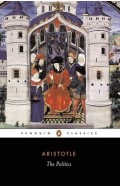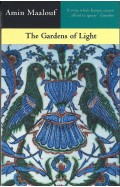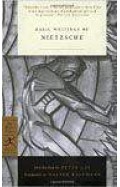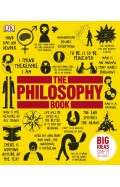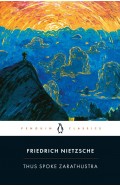- Home
- Books
- Categories
- Non Fiction
- Politics & Current Affairs
- The Philosophy Of Illumination Hikmat Al Ishraq
The Philosophy Of Illumination Hikmat Al Ishraq
By: J Walbridge And Hossein Ziai
-
Rs 1,035.00
- Rs 1,150.00
- 10%
You save Rs 115.00.
Due to constant currency fluctuation, prices are subject to change with or without notice.
THE PHILOSOPHY OF ILLUMINATION -(Hikamat al-Ishrāq by Shihāb al-Dīn al-Suhrawardī)
Suhrawardī’s Hikmat al-Ishrāq is counted among the most influential texts of Islamic intellectual history. The subject of Hikmat al-Ishrāq is the “science of lights”– a science that Suhrawardī first learned through mystical exercises reinforced later by logical proofs and finally confirmed by what he saw as the parallel experiences of the Ancients.
Shihāb al-Dīn al-Suhrawardī was born around 1154, probably in northwestern Iran. Spurred by a dream in which Aristotle appeared to him, he rejected the Avicenna’s Peripatetic philosophy of his youth and undertook the task of reviving the earlier philosophical tradition of the “Ancients.” Suhrawardī’s philosophy grants a fundamental epistemological role to immediate and atemporal intuition. It is explicitly– often stridently– anti-Peripatetic and is identified with the pre Aristotelian sages, particularly Plato. He was convinced that the same wisdom was also to be found among other nations, including the Egyptians (as represented most prominently by Hermes Trismegistus) and the pre-Islamic sages and righteous kings of Persia. The translators present the first English edition of Hikmat al-Ishrāq with a sensitivity that conveys both the metaphysical richness and the philosophic subtleties of the work.
THE PHILOSOPHY OF ILLUMINATION -(Hikamat al-Ishrāq by Shihāb al-Dīn al-Suhrawardī)
Suhrawardī’s Hikmat al-Ishrāq is counted among the most influential texts of Islamic intellectual history. The subject of Hikmat al-Ishrāq is the “science of lights”– a science that Suhrawardī first learned through mystical exercises reinforced later by logical proofs and finally confirmed by what he saw as the parallel experiences of the Ancients.
Shihāb al-Dīn al-Suhrawardī was born around 1154, probably in northwestern Iran. Spurred by a dream in which Aristotle appeared to him, he rejected the Avicenna’s Peripatetic philosophy of his youth and undertook the task of reviving the earlier philosophical tradition of the “Ancients.” Suhrawardī’s philosophy grants a fundamental epistemological role to immediate and atemporal intuition. It is explicitly– often stridently– anti-Peripatetic and is identified with the pre Aristotelian sages, particularly Plato. He was convinced that the same wisdom was also to be found among other nations, including the Egyptians (as represented most prominently by Hermes Trismegistus) and the pre-Islamic sages and righteous kings of Persia. The translators present the first English edition of Hikmat al-Ishrāq with a sensitivity that conveys both the metaphysical richness and the philosophic subtleties of the work.
The Philosophy Of Illumination Hikmat Al Ishraq
By: J Walbridge And Hossein Ziai
Rs 1,035.00 Rs 1,150.00 Ex Tax :Rs 1,035.00
Zubin Mehta: A Musical Journey (An Authorized Biography)
By: VOID - Bakhtiar K. Dadabhoy
Rs 892.50 Rs 1,050.00 Ex Tax :Rs 892.50
The Principles Of Epistemology In Islam Philosophy
By: Mehdi Hairi Yazdi
Rs 672.00 Rs 840.00 Ex Tax :Rs 672.00
The Wisdom of the Throne: Al Hikmat Al Arshiya -
By: James Winston Morris
Rs 765.00 Rs 900.00 Ex Tax :Rs 765.00
The Quest For Meaning: Developing A Philosophy Of Pluralism
By: Tariq Ramadan
Rs 1,185.75 Rs 1,395.00 Ex Tax :Rs 1,185.75
The Basic Writings of Nietzsche
By: Peter Gay/Sigmund Freud
Rs 3,865.50 Rs 4,295.00 Ex Tax :Rs 3,865.50
The Principles Of Epistemology In Islam Philosophy
By: Mehdi Hairi Yazdi
Rs 672.00 Rs 840.00 Ex Tax :Rs 672.00
The Wisdom of the Throne: Al Hikmat Al Arshiya -
By: James Winston Morris
Rs 765.00 Rs 900.00 Ex Tax :Rs 765.00
The Adventures of Man Sponge and Boy Patrick - Paperback
By: Nickelodeon
Rs 647.50 Rs 1,295.00 Ex Tax :Rs 647.50
Billy Summers: The No. 1 Sunday Times Bestseller
By: Stephen King
Rs 2,335.50 Rs 2,595.00 Ex Tax :Rs 2,335.50
A Good Girl’s Guide to Murder Collectors Edition
By: Holly Jackson
Rs 3,415.50 Rs 3,795.00 Ex Tax :Rs 3,415.50
Zubin Mehta: A Musical Journey (An Authorized Biography)
By: VOID - Bakhtiar K. Dadabhoy
Rs 892.50 Rs 1,050.00 Ex Tax :Rs 892.50
The Philosophy Of Illumination Hikmat Al Ishraq
By: J Walbridge And Hossein Ziai
Rs 1,035.00 Rs 1,150.00 Ex Tax :Rs 1,035.00
The Principles Of Epistemology In Islam Philosophy
By: Mehdi Hairi Yazdi
Rs 672.00 Rs 840.00 Ex Tax :Rs 672.00
The Wisdom of the Throne: Al Hikmat Al Arshiya -
By: James Winston Morris
Rs 765.00 Rs 900.00 Ex Tax :Rs 765.00














-120x187.jpg?q6)








